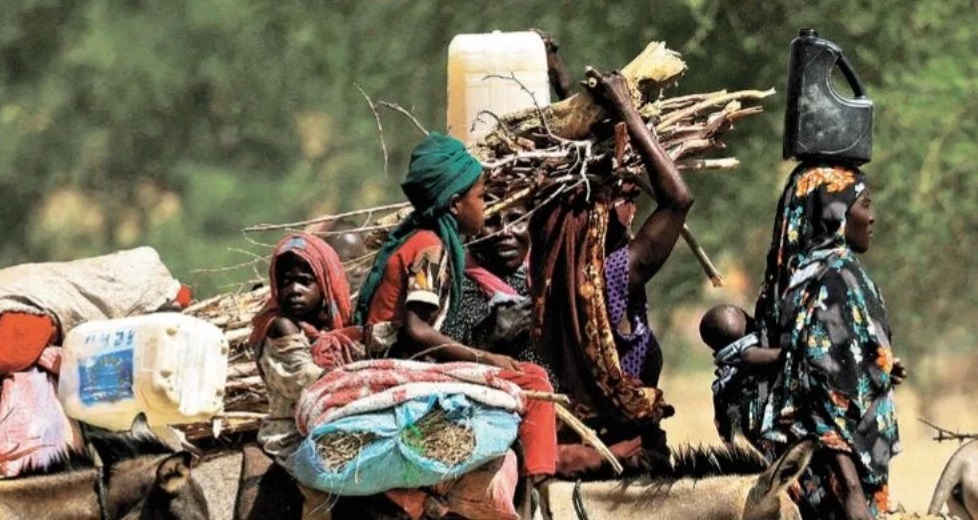Do not forsake Sudan
One year has passed since the outbreak of war in Sudan, unleashing twelve months of relentless violence and conflict. The toll has been immense: countless lives lost, millions displaced, widespread hunger, and an ongoing humanitarian crisis of staggering proportions.
Apr 26, 2024

YAOUNDÉ, Cameroon: One year has passed since the outbreak of war in Sudan, unleashing twelve months of relentless violence and conflict. The toll has been immense: countless lives lost, millions displaced, widespread hunger, and an ongoing humanitarian crisis of staggering proportions.
It began on April 15, 2023, leaving behind a trail of death, destruction, and unspeakable atrocities including rapes and murders. The magnitude of the tragedy is catastrophic, with at least 15,000 lives lost, eight million people displaced, and another 25 million reliant on humanitarian aid for survival. The streets of the Northeast African country are littered with corpses, and as the crisis deepens, funding for NGOs and UN agencies dwindles, dimming the hopes of the suffering population.
The Catholic Church’s major international charitable organisation is now warning of massive new challenges on virtually every imaginable humanitarian front.
“After having already endured years of protracted crisis in the country, the Sudanese people now face much greater threats to their safety and security, housing, water, food, essential health infrastructure and education,” said Caritas Internationalis in a statement.
According to Caritas, nearly one-third of Sudan’s population, approximately 18 million people, is now grappling with acute food shortages.
Even before the war, Sudan’s living conditions were harsh and unjust due to economic instability and ethnic violence.
Though humanitarian supplies are available, getting them to those in need remains an enormous challenge, and NGOs and aid organisations face looting, bureaucratic hurdles, and severe struggles with communication.
As is often, if not always the case, women, children and displaced people bear the brunt of the suffering. Children born amidst the violence face a difficult future whilst malnourished mothers struggle to feed them.
The Caritas statement also talked about outbreaks in such diseases as cholera, which it said are “compounding the impact on the population, two-thirds of whom lack access to healthcare.”
The World Health Organisation reports that assaults on healthcare facilities have exacerbated the struggle for women and girls to obtain essential medical services. With almost 75 per cent of health institutions non-functional and outbreaks of diseases on the rise, access to healthcare remains out of reach for two-thirds of the populace.
Caritas has warned that the situation is likely to get worse “given the radically reduced production of Sudan’s main staple cereals of sorghum and millet.”
Caritas complained that even as the needs continue to rise, the humanitarian appeal wasn’t getting the necessary response, with only seven per cent currently being funded. Yet, the group said, “the 2024 Sudan Regional Refugee Response Plan urgently requires $1.4 billion (RM6.6 billion) to continue critical life-saving interventions and protection to 2.7 million refugees, returnees and host communities in five neighbouring countries.”
Amidst worsening conditions, Caritas has issued an urgent appeal for the mobilisation of fresh resources and the forging of partnerships with diaspora networks and agencies to ensure vital assistance reaches those most affected. Highlighting the need for a robust and collaborative international response, Caritas emphasises the importance of cross-border initiatives from Chad and South Sudan to expand humanitarian access, aiming for an immediate ceasefire and the resolution of the conflict fuelling the severe hunger crisis of 2024.
“We implore the international community not to forsake the people of Sudan, notwithstanding the attention drawn to conflicts elsewhere,” states the Caritas statement.
“While acknowledging the commendable grassroots efforts and the support from the Sudanese diaspora, including peace-building initiatives led by religious and traditional leaders, we urgently appeal for significantly increased international humanitarian aid to alleviate the immense suffering of the populace.”
This plea resonates with the sentiments expressed by Pope Francis on February 18, wherein he urged the conflicting factions in Sudan to lay down their arms and pursue peace.
“Ten months have passed since the eruption of armed conflict in Sudan, resulting in a dire humanitarian crisis,” remarked Francis during his Angelus Prayer.
“I reiterate my call to the belligerents to halt this destructive war, which inflicts grievous harm upon the people and the nation’s future. Let us pray for the swift emergence of peaceful avenues to chart the path forward for beloved Sudan,” he concluded. — Agencies







Total Comments:0